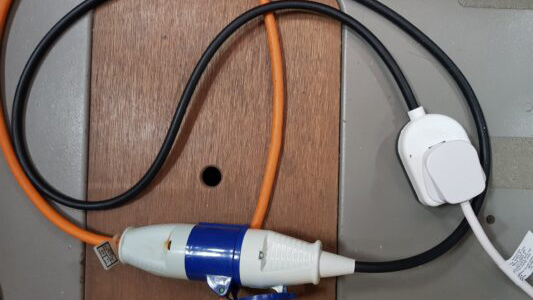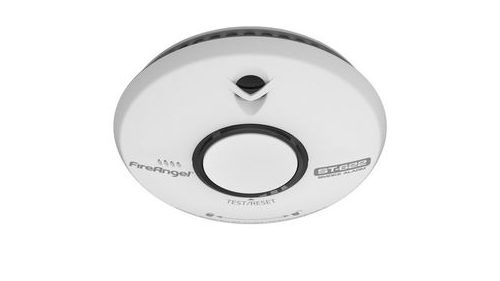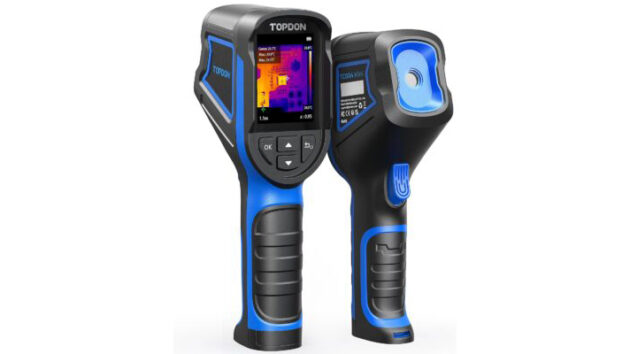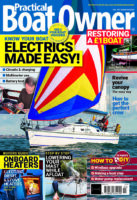Every year we see shocking pictures of boats destroyed by a boat fire, the majority of them are electrical. I've had my own brush with potential boat fire due to electrical faults and failure to check on them. Here's some personal advise to all boat owners on what to look for and check regularly.
Electrical and faulty appliances – 52% risk factor in boat fires
Electrical fires make up over half of all boat fires according to insurance information obtained by Boatus.com
I’m no stranger to the alarming whiff of burning plastic, when on more than one occasion one of my adapters has been overloaded (by accident) and caused a melted plug. I had to use an oven glove to wrench them apart quickly.
I live onboard my boats, year round, and in the cooler Northern hemisphere I rely on a boat dehumidifier and electric boat heater when moored. It’s very easy to overload a power outlet or adapter. One year it was some fairy lights that tipped the balance around Christmas time. Another time it was routine maintenance that helped me discover an almost burned out shore power socket.
On another occasion, during an offshore passage I saw smoke coming from my USB charging device as a little salt water had gone into the connector by accident. It was a very close call. I pulled the device away from the power and removed the cable from the socket while smoke was whisping out of it. A runaway fire like that could have caused a catastrophe at sea.
High profile boat fires are often in the news, ripping through multiple boats in a yard or marina and they happen every year. Indeed there was one such boatyard fire incident in recent weeks. And while the causes of that particular fire remain unclear at the moment, more than half of boat fires are electrical, both DC and AC types. A little diligence can stop any boat fire from starting.

stats sourced by boatus.com
Boat fire risk items:
- Dehumidifiers (compressor type) (In my buyers guide I recommend the use of desiccant dehumidifiers on boats)
- Boat Heaters (electric domestic) beware of anything more than 2kw as it may overload your outlet.
- High powered electrical appliances
- Engine room electrical cables
- Shore power cables
- Boat batteries
- usb charged devices with lithium batteries
How to protect yourself from common boat fire causes

I found this wire when inspecting behind my main 240v AC socket. It was a fire waiting to happen.
1. Inspect Wiring Regularly
Check for corrosion, brittle insulation, or frayed wires.
Look for discoloration or melting—signs of overheating.
Replace damaged or old wiring immediately using marine-grade wire.

The smell of burning plastic alerted me to a potential disaster happening
2. Use Only Marine-Grade Electrical Components
Automotive or household parts can’t handle the marine environment.
Use marine-rated cables, connectors, and fuses that resist corrosion and meet ABYC standards.

An adapter for plug conversions are never rated highly for current. Never tempt fate by overloading it with a high powered appliance. The fuse in this didn’t blow. It overheated instead and was about to catch fire.
3. Install Proper Fusing
Every circuit should have the correct fuse or circuit breaker, ideally as close to the power source as possible.
Over-fusing is a fire risk—never replace a fuse with one rated too high.
4. Keep Connections Dry and Secure
Use heat-shrink terminals and waterproof connectors.
Protect connections from moisture using dielectric grease or corrosion inhibitors.
Routinely check for loose terminals, especially in high-vibration areas.

5. Avoid DIY Shortcuts
If you’re not sure, consult a marine electrician.
Avoid twisting wires together or using household extension cords.
Ensure all work meets ABYC or ISO standards.

Proper battery installation and maintenance is an essential part of boat fire safety
6. Maintain Your Battery System
Check terminals for corrosion and clean regularly.
Use proper cable sizes to prevent overheating.
Ensure batteries are securely mounted and vented (especially lead-acid types).

7. Install a Smoke Detector and Fire Extinguishers
Put a smoke detector in the engine room if possible.
Keep marine-rated extinguishers within easy reach.
Learn how to use them and check them annually.

This fan heater was rated at 3kw. It was far too powerful for the socket on the boat and overloaded it progressively. With continued use, the socket would have caused a fire.
8. Watch for Overloaded Circuits
Don’t plug too many devices into a single outlet or circuit.
Use load calculations to stay within your system’s capacity.
Avoid using high-draw appliances on circuits not rated for them.

9. Monitor for Heat
Touch panels and wiring enclosures occasionally—if they’re warm, there’s a problem.
Use infrared thermometers to detect hot spots before they become fire hazards.

Look carefully, you can see the overheated pin on this. If I had a heat detector in the room it would have flagged this up as a hot spot and alerted me earlier.
10. Schedule Annual Electrical System Checks
Have a qualified marine electrician inspect your boat at least once a year.
They can identify hidden faults or degradation you might miss.
Want to read more articles like this?

A subscription to Practical Boat Owner magazine costs around 40% less than the cover price.
Print and digital editions are available through Magazines Direct – where you can also find the latest deals.
PBO is packed with information to help you get the most from boat ownership – whether sail or power.
-
-
-
- Take your DIY skills to the next level with trusted advice on boat maintenance and repairs
- Impartial, in-depth gear reviews
- Practical cruising tips for making the most of your time afloat
-
-
Follow us on Facebook, Instagram, TikTok and Twitter




